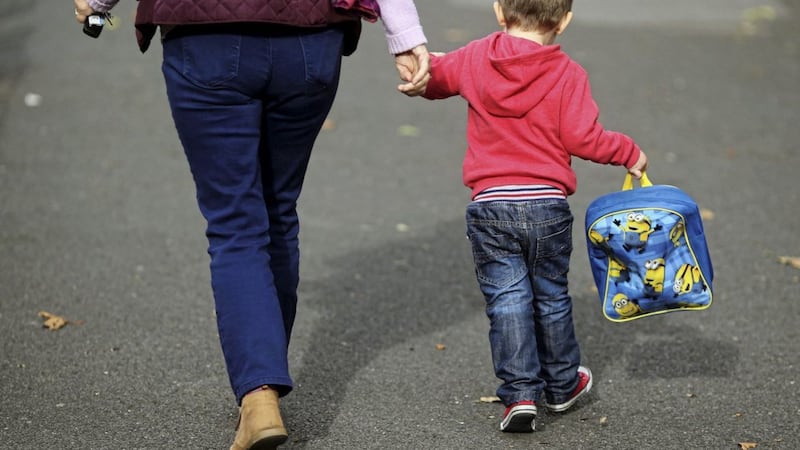PARENTS have warned that thousands of pupils in Irish border communities could face disrupted journeys to school if a hard border is implemented post-Brexit.
While many students attend schools on the opposite side of the border through schemes approved by authorities, countless others are believed to use a practice commonly referred to as "grannying" to attend school in Northern Ireland.
Parents near the border are braced for the re-emergence of "unapproved roads" like those used during the Troubles, to take their children to school.
While the British and Irish governments insist the free movement of people between the two jurisdictions will not be affected, queues of traffic affecting thousands are anticipated if customs checks are reintroduced on the border after March 29.
A reciprocal agreement exists between Northern Ireland and the Republic whereby children living on one side of the border are able to access an education on the other side.
Read More: Hardline Brexiteers to join new taskforce seeking backstop alternative
However, schools in Northern Ireland may only consider a child resident in the south for admission after all resident children who have applied to the school have been considered.
A practice known as "grannying" involves residents who move to the Republic presenting schools in Northern Ireland with proof of address at a grandmother or relative's house to avoid being left out.
One Derry mother, who admits to using the unauthorised practice, has expressed concern.
The woman, who has lived in Donegal for more than 16 years and has two children attending school in Northern Ireland, said the idea of sending her children to school in the Republic never crossed her mind.
"I'm from Derry originally, I work and pay tax in Derry, it made sense for the children to go to school there," she said.
Read More: Hard border could put children at risk, claims doctor
The Troubles saw many smaller cross-border roads become unauthorised border crossings known officially as "unapproved roads", which local people used to avoid customs officials and security services.
"In my village alone, a tiny village, there's four back roads into Derry city," the mother-of-two added.
"I could confidently say 90 per cent of my neighbours in this housing estate are from Derry city originally and still working there, or have children attend school there."
Marguerite Hamilton, a former principal of Thornhill College in Derry said it is "inconceivable" that children could be prevented or delayed from attending school if customs posts were installed.
Ms Hamilton said schools across Northern Ireland are aware of "grannying" students living over the border.
"When a child applies for school, we ask for a verifiable proof of address, a bank statement or letter from a doctor for example, if they can supply the proof, it is not the school's place to go around investigating if the child actually resides there or not," she said.
She added: "What's clear is that those arguing about the border in London will not have their lives affected by the consequences."
Statistics on how often the practice is used are unverifiable, but Ms Hamilton believes there are hundreds attending school in Northern Ireland who reside in the Republic.
The south's education department said it is confident the Common Travel Area will facilitate existing arrangements for cross-border pupils.
Education minister Joe McHugh said school communities along the border have "done tremendous work over the last 20 years in cementing the peace process".
"I've talked about this issue in recent days with the heads of the department and the need to better understand the important role that these schools, their staff, pupils and parents have played in that and will continue to play," he said.
Stormont's education department said it is aware of the issue, but has faith the Common Travel Area between the two jurisdictions will safeguard access to education.
"The issue of the provision of false information on an application is not limited to the home address of a pupil and the department has provided guidance to schools on their duty to verify application information," a spokeswoman said.
"A parent providing information that is found to be false may have the offer of a place for their child withdrawn.
"In relation to the impact of Brexit, the British and Irish governments have agreed that the rights flowing from the Common Travel Area should be maintained.
"The Common Travel Area provides citizens of the UK and Republic of Ireland with the right to access services, including education, in the other jurisdiction."








